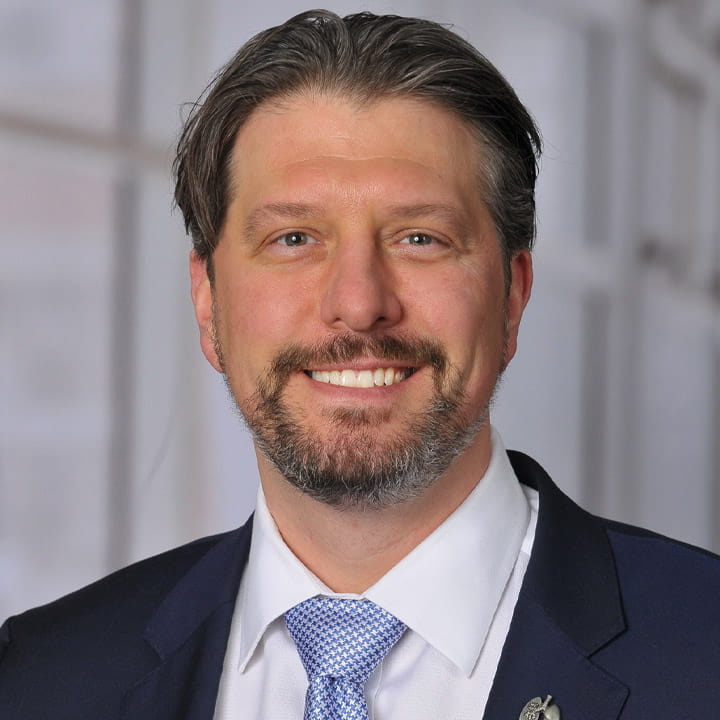 What is structural heart disease?
What is structural heart disease?
Structural heart disease occurs when there is a problem with one of your heart valves, walls or chambers. For most people, they are born with this structural defect, but it can also develop over time. Your heart is a muscular pump consisting of four chambers and four valves: mitral, aortic, tricuspid and pulmonary. These valves open and close to keep blood flowing through your heart. If you have a type of structural heart disease, blood can’t flow in and out of your heart properly. These problems can lead to other issues, like leaks (valve regurgitation) and blockages (valve stenosis).
Types of structural heart disease
The specific form of your structural heart disease is one part of the equation that helps our heart specialists provide you with the best possible treatment. These are most common types of structural heart disease:
- Cardiomyopathy – Your heart muscle is too weak to effectively pump blood.
- Congenital heart diseases – This refers to abnormalities you’ve had since birth, such as atrial septal defect and ventricular septal defect.
- Heart valve disease – This happens when one or more heart valves, such as mitral valve and aortic valve, don’t open or close properly, disrupting blood flow.
What causes structural heart disease?
In many cases, you are born with structural heart disease. In other instances, structural heart disease can develop over time due to factors including:
- Aging – specifically, the development of calcium deposits on heart valves
- Aortic aneurysm
- Atherosclerosis – buildup of plaque in the arteries
- Cancer radiation treatment
- Drug or excessive alcohol use
- High blood pressure (hypertension)
What are symptoms of structural heart disease?
The symptoms you may experience with structural heart disease depend upon the exact condition you have. It’s also possible to have structural heart disease without showing any symptoms until the disease progresses later in life. Signs and symptoms can include:
- Chest pain or tightening in the chest
- Fatigue
- High blood pressure
- Irregular heartbeat, or arrhythmia
- Kidney problems
- Leg cramps
- Shortness of breath
- Stroke
- Transient ischemic attacks (TIA), or “mini strokes”
Structural heart disease treatment
In some cases, you may not need immediate treatment for your structural heart disease. In these cases, your cardiologist will recommend ongoing monitoring. If you do need to undergo treatment for structural heart disease, you may need one or more of the following:
- Cardiac device, such as a pacemaker
- Heart transplant
- Medication
- Procedure to bypass or open up coronary arteries
- Procedure to repair or replace valves
Why Ohio State is the best hospital for treating your structural heart disease?
The Ohio State University Heart and Vascular Center’s Structural Heart Disease Program is a leader in providing patients with heart valve disease access to the newest and most advanced treatments.
Ohio State is one of only a handful of centers in Ohio offering transcatheter aortic valve replacement (TAVR) for aortic valve regurgitation or aortic valve stenosis. We are currently participating in a variety of clinical trials, evaluating groundbreaking therapies in patients with structural heart disease.
Our dedicated program for structural heart disease offers you access to the most advanced treatments and options for every condition. We’ve assembled a team of experts, including interventional cardiologists, cardiac surgeons, dedicated nursing staff and other specialists, to ensure you receive the most comprehensive care available.
Our team can evaluate your condition and provide treatment options for you — whether this is your initial consultation or you’re looking for a second opinion. Our advanced treatment options are giving new hope to patients who previously weren’t considered candidates for treatment due to advanced age or condition.
Learn more about structural heart disease
Our nurse practitioners and physician assistants
Advanced practice providers, or APPs, are medical providers (nurse practitioners) who are trained and educated similarly to physicians. They work in all areas of the hospital and clinic, and patients can be treated by an APP in the emergency department, operating room or during routine visits.
How would you like to schedule?
Don’t have MyChart? Create an account



